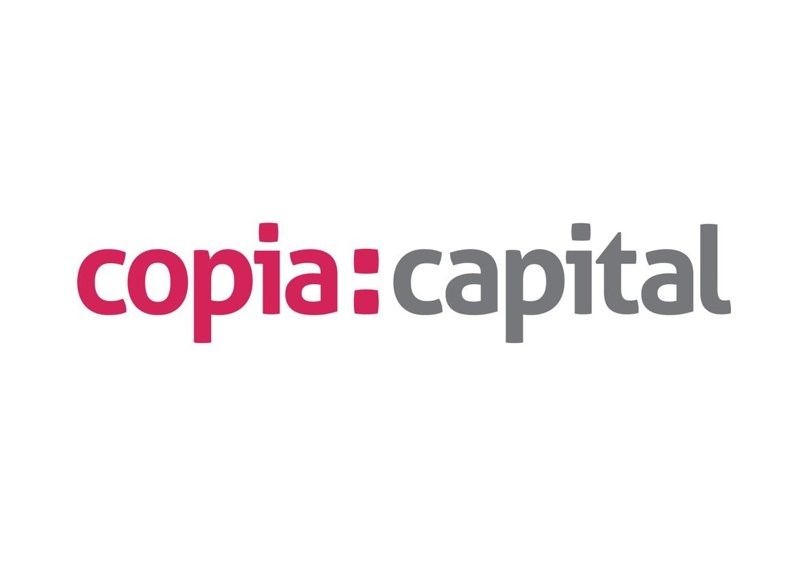18 Jun 2024
Market update: Improved economic data

Richard Warne, Senior Portfolio Manager, Copia Capital
For professional advisers only
Despite a mixed start to 2024, recent gains on the back of improved global economic data and expected rate cuts are providing a more positive outlook for investments. Richard Warne, Senior Portfolio Manager at Copia Capital, gives an update on markets over the last quarter and some of the opportunities we are seeing for portfolios.
US equities and the Magnificent Seven
Global equities have performed reasonably well in the last 12 months, predominantly driven by the US which has proved incredibly resilient. Much of the performance has been dominated by a handful of stocks known as the ‘Magnificent Seven’. These stocks, which are Alphabet, Amazon, Apple, Meta Platforms, Microsoft, Netflix and Nvidia, increased by 80% in 2023[i] and now constitute nearly a third of the S&P 500. If you look at the performance of the S&P 500 with the Magnificent Seven stripped out, the other 493 companies in the index have basically gone nowhere over the last 13 months.
It’s rare to have so much concentration in a market, with most of the returns delivered by so few stocks, but it does tend to correlate with periods of market exuberance. We saw a similar concentration of returns in the dot com bubble of the early 2000s, followed by a significant reversal of fortunes. We think the valuations of these stocks are priced at a premium and, in fact, since the start of the year, we’ve seen signs that some are beginning to fade. Tesla, for instance, is seeing more intense competition from China and established automobile companies coming to market with their own EVs, which is starting to be reflected in its valuation.
Looking at the wider US economy, while it has seen strong growth over the last year, particularly compared to the UK and Europe, federal debt is at its highest since the pandemic at 120% of GDP[ii]. The interest being paid on US Treasuries is around $850 billion this year and is set to increase to $1.4 trillion annually in the next few years. We think that will prove to be significant in future as it will put severe fiscal constraints on the government further down the line.
Exactly how a government reacts to the fiscal constraints will be driven potentially by who wins the upcoming election. Trump is still ahead in key battleground states according to most polls, but US electoral experts we’ve spoken to are saying that it’s currently too close call. Assuming a Trump win, based on his previous term, we could see an increase in fiscal spending paid for by increasing tariffs between the US and China and Europe, which could impact inflation. Companies that are generating substantial revenues could also be a target for higher tax rates, or at least less attractive federal benefits.
Opportunities in the UK market
While the US is at the top end of the valuation range, the UK market looks much more attractive, especially lower down the market cap spectrum, which is creating opportunities for investors. UK equities have been in the doghouse following Brexit and further damaged by the Truss and Kwarteng budget of 2022.
Although valuation alone is not the be-all and end-all, we think it’s a good starting point. As a result of cheaper valuations, we’re seeing a significant number of companies buying back their own shares. In 2023, there were over £50 billion in share buybacks[iii], from a range of different companies and we’re expecting a similar level this year.
We’re starting to see more M&A activity in the UK market and these buyback programmes suggest that many quality UK businesses think their shares are currently far too cheap, so they are working to support their share prices and defend themselves from unwanted attention from possible overseas buyers.
Inflation is also coming down, with the latest figures from the Office for National Statistics putting inflation at 2.3% in the 12 months to April[iv], down from 3.2% the previous month and close to the Bank of England target of 2%. Although the cost of living crisis isn’t over, it is becoming less of a headwind for businesses. There’s increasing speculation around a rate cut in the summer, supporting the positive outlook for the UK market, especially for companies in the FTSE250 and 350, which are much more affected by domestic interest rates than more globally focussed larger companies.
Positive outlook for Japanese equities
Japanese equities have performed well over the last year, and we think there’s potential for this positive trend to continue. Japanese companies historically have been very conservatively run, holding huge amounts of cash on their balance sheets. Over the last 18 months, the Tokyo Stock Exchange has been encouraging companies to focus on putting that cash to work and getting a better return on invested capital.
At the same time, there has been a policy to encourage equity ownership among consumers. The Japanese have around $20 trillion of cash sitting in household savings, and the government is trying to move some of that into investments. In January, it increased the NISA (Nippon Individual Savings Account) limit to 3.6 million yen per year (close to £18,000) and 18 million yen in total (around £90,000)[v]. NISAs, which can hold equities, ETFs and mutual funds, are also now permanently tax-free.
Looking forward
Our proprietary risk barometer, which uses economic and market data to calculate an overall investment risk score of between +1.0 and -1.0, has moved further into positive territory, reading +0.51 as at the end of April.
The Risk Barometer uses a red, amber, and green system to show the level of risk. The current +0.51 is in the green zone (risk scores between +1.0 and +0.33) indicating that the economic outlook remains positive. An amber score (+0.32 to -0.32), would suggest a more balanced outlook, while a red score (-0.33 to -1.0) indicates more negative global economic signals. After being red for most of 2023, the Barometer moved into the amber zone in December and to green in February, suggesting a more positive outlook for 2024.
Overall, it is important to remain well diversified, especially given the current high degree of geopolitical risk. While there are still likely to be bumps in the road, we continue to look for value and quality over growth and think the investment opportunities are increasingly interesting.
Please remember that the value of investments and the income from them can fall as well as rise, and you may get back less than you invest. Tax treatment depends on individual circumstances and may be subject to change in the future.
[i] Bloomberg 22 January 2024
[ii] OMB St Louis Fed
[iii] AJ Bell Limited, company accounts
[iv] https://www.ons.gov.uk/economy/inflationandpriceindices/bulletins/consumerpriceinflation/april2024
[v] As at 28 May 2024

